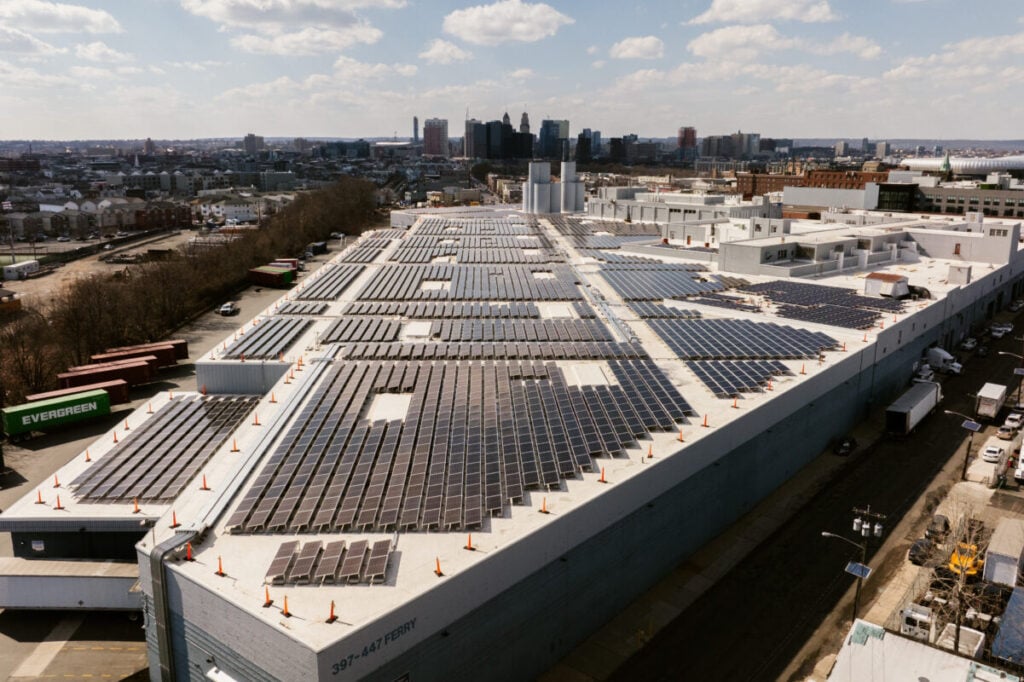
Three US developers have announced new financing rounds this month: Recurrent Energy, for Arizona solar and storage projects; Ampliform, for its project pipeline across the PJM region; and Dimension Energy, for a 134MW community solar portfolio.
Recurrent Energy raises US$825 million for Arizona solar and storage projects
Recurrent Energy, a subsidiary of Canadian Solar, has raised US$825 million in construction financing and tax equity for two projects currently under construction: the 150MW Papago solar project and the 600MWh Desert Bloom standalone energy storage project.
Try Premium for just $1
- Full premium access for the first month at only $1
- Converts to an annual rate after 30 days unless cancelled
- Cancel anytime during the trial period
Premium Benefits
- Expert industry analysis and interviews
- Digital access to PV Tech Power journal
- Exclusive event discounts
Or get the full Premium subscription right away
Or continue reading this article for free
Both projects are located in Maricopa County, Arizona, and are part of a multi-project partnership with local utility, the Arizona Public Service (APS). Recurrent secured constructing financing from Nord/LB, the Mitsubishi UFJ Financial Group (MUFG), CoBank and Siemens Financial Services, and tax equity from Wells Fargo, and expects to begin commercial operations at both projects in the first half of 2026.
“Desert Bloom Storage and Papago Solar will help provide the community with reliable, carbon-free energy while enhancing the resiliency of the grid,” said MUFG managing director of project finance Fred Zelaya. “We look forward to continuing to support Recurrent Energy’s ambitious growth in the renewable energy sector.”
Read more about this deal on our sister site, Energy-Storage.news.
Ampliform raises US$165 million from Copenhagen Infrastructure Partners
Pennsylvania-based solar developer Ampliform has raised US$165 million in loan financing with Copenhagen Infrastructure Partners (CIP) for its project pipeline across the US.
CIP delivered the financing through its Green Credit Fund I, which has now raised around US$1.1 billion in private debt to support energy projects around the world. While Ampliform did not specify which of its projects would benefit from the additional financing, the company has 800MW of capacity in its “near-term” pipeline in the PJM Interconnection regional transmission organisation (RTO), which covers a number of eastern and Atlantic coast states including Pennsylvania and Ohio.
The company has a total development pipeline of 5GW across solar and storage assets, and plans to double this development pipeline in the coming years. Its other investors include the Jones Family Office, Barings and the George Kaiser Family Foundation.
“This financing marks a pivotal moment for the company,” said Carl Jackson, founder and CEO of Ampliform. “Securing this capital provides us with additional resources to significantly accelerate our growth.”
Dimension Energy to push operational capacity above 1GW
Earlier this month, community solar developer Dimension Energy completed its largest financing round, securing US$412 million to support a 134MW portfolio of community solar projects across six eastern states.
The financing was provided by MUFG, First Citizens, ING, the National Bank of Canada, Cadence and Siemens—with Advantage Capital providing US$176 million in tax equity—and will be used to support projects across Illinois, Maine, New Jersey, New York, Pennsylvania and Virginia.
Since its founding in 2018, the company has installed more than 900MW of community solar capacity, so the latest investment will push its operational portfolio above 1GW. The company expects to invest US$4 billion over the next five years, and expand its total development pipeline to 3.5GW.
Sustained investment from the private sector will be vital to the long-term health of the US community solar sector, with a report from Wood Mackenzie and the Coalition for Community Solar Access (CCSA) finding that community solar additions have declined in the first six months of the second Trump term, and that this slowdown is expected to continue.






